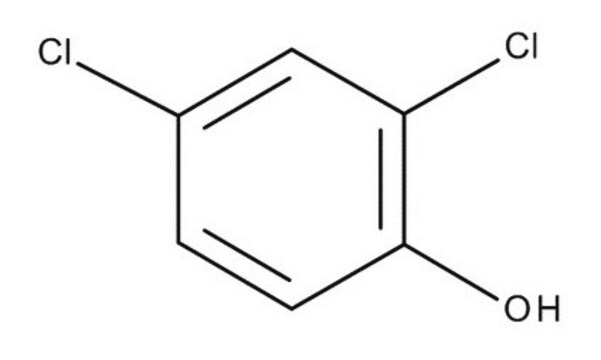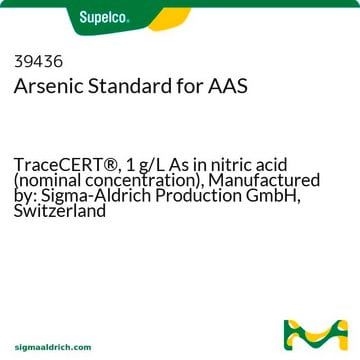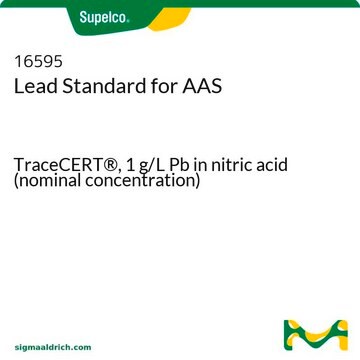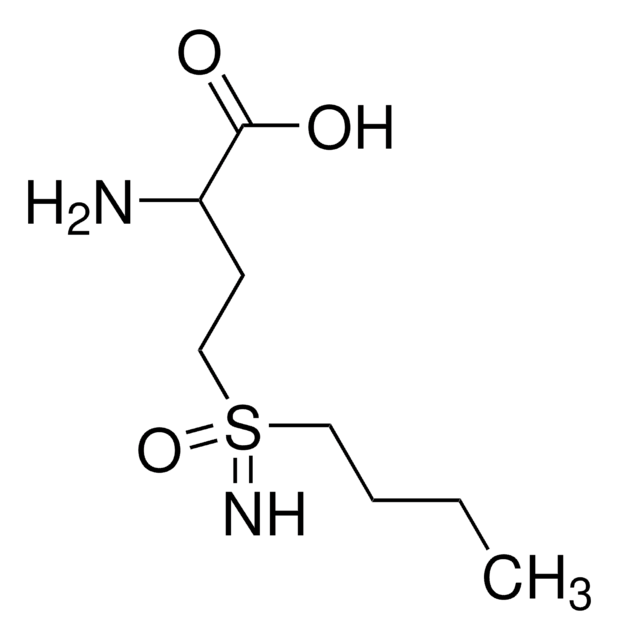17971
Arsenic(III) oxide
reference material for titrimetry, certified by BAM, >99.5%
Synonym(s):
Arsenic trioxide, Arsenous acid
About This Item
Recommended Products
grade
reference material
Quality Level
Assay
>99.5%
quality
certified by BAM
technique(s)
titration: suitable
application(s)
agriculture
environmental
format
neat
SMILES string
O=[As]O[As]=O
InChI
1S/As2O3/c3-1-5-2-4
InChI key
IKWTVSLWAPBBKU-UHFFFAOYSA-N
Looking for similar products? Visit Product Comparison Guide
General description
Application
Features and Benefits
- Available as a solid in a secure glass bottle to ensure its stability for the entire shelf life until opened.
- Traceable to NIST standard reference material
- Offers accurate titer determinations
- Accompanied by a certificate of analysis (CoA)
Analysis Note
Signal Word
Danger
Hazard Statements
Precautionary Statements
Hazard Classifications
Acute Tox. 2 Oral - Aquatic Acute 1 - Aquatic Chronic 1 - Carc. 1A - Eye Dam. 1 - Skin Corr. 1B - STOT RE 1
Target Organs
Respiratory system,Cardio-vascular system,Gastrointestinal tract
Storage Class Code
6.1A - Combustible acute toxic Cat. 1 and 2 / very toxic hazardous materials
WGK
WGK 3
Flash Point(F)
Not applicable
Flash Point(C)
Not applicable
Personal Protective Equipment
Regulatory Listings
Regulatory Listings are mainly provided for chemical products. Only limited information can be provided here for non-chemical products. No entry means none of the components are listed. It is the user’s obligation to ensure the safe and legal use of the product.
EU REACH SVHC Candidate List
EU REACH Annex XVII (Restriction List)
EU REACH Annex XIV (Authorisation List)
Choose from one of the most recent versions:
Already Own This Product?
Find documentation for the products that you have recently purchased in the Document Library.
Customers Also Viewed
Our team of scientists has experience in all areas of research including Life Science, Material Science, Chemical Synthesis, Chromatography, Analytical and many others.
Contact Technical Service











